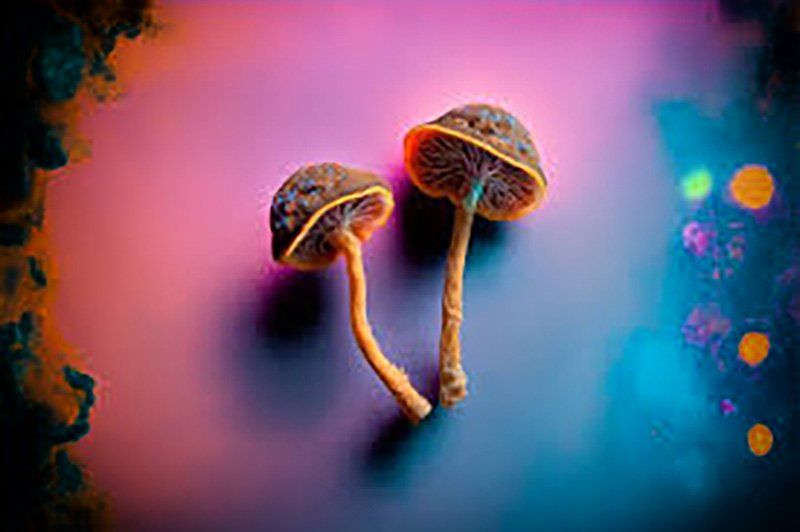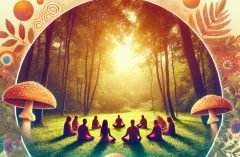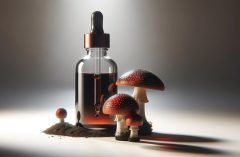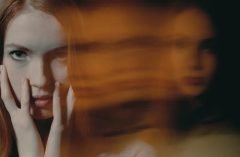Table of Contents
- 1 What Is Psilocybin and Where Does It Come From?
- 1.1 Psilocybin is a naturally occurring psychedelic compound found in certain species of mushrooms, commonly known as magic mushrooms or ‘shrooms.’
- 1.2 Magic mushrooms containing psilocybin have been used for centuries as a traditional medicine and for religious rituals.
- 1.3 In small doses, psilocybin can produce euphoria, visual and auditory hallucinations, changes in perception, and spiritual experiences. However, in large doses, it may induce anxiety, paranoia, and delusional thoughts.
- 2 The History and Stigma Around Magic Mushrooms
- 3 Potential Benefits of Psilocybin When Used Responsibly
- 4 Common Concerns and Misconceptions
- 5 Conclusion
 People often approach me at various social events after reading my articles on Psilocybin and magic mushrooms. (I’m fairly well-known in my community, much to my dismay.)
People often approach me at various social events after reading my articles on Psilocybin and magic mushrooms. (I’m fairly well-known in my community, much to my dismay.)
Most ‘deathly afraid’ types are so frightened about the use of Psilocybin and magic mushrooms, and I needed to find out why. I needed to know what it is that frightens them so much. Here’s what I found…
What Is Psilocybin and Where Does It Come From?
Psilocybin is a naturally occurring psychedelic compound found in certain species of mushrooms, commonly known as magic mushrooms or ‘shrooms.’
Psilocybin is classified as an indoleamine hallucinogen. It is believed to produce its psychedelic effects by activating serotonin 2A receptors in the brain, which can alter perceptions and cognitive processes.
It was first isolated from mushrooms in 1958 by Swiss scientist Albert Hofmann.
Magic mushrooms containing psilocybin have been used for centuries as a traditional medicine and for religious rituals.
Archaeological evidence suggests magic mushrooms were used for ritual purposes as early as 9000 BC in North Africa. They were also commonly used in Mesoamerican spiritual ceremonies.
Today, magic mushrooms are still used for spiritual and religious purposes, especially in indigenous cultures. However, in many Western countries, magic mushrooms are illegal due to their hallucinogenic and psychoactive effects.
In small doses, psilocybin can produce euphoria, visual and auditory hallucinations, changes in perception, and spiritual experiences. However, in large doses, it may induce anxiety, paranoia, and delusional thoughts.
Due to the psychoactive and unpredictable effects, many people are hesitant to try magic mushrooms.
Although research into the therapeutic potential of psilocybin is promising, psilocybin can be dangerous if not used carefully under medical supervision.
More research is still needed to fully understand the effects of psilocybin on the brain and body.
The History and Stigma Around Magic Mushrooms
A Long History of Use
Magic mushrooms have been used for thousands of years, with the earliest documented use around 9,000 BCE in North African cave paintings.
Ancient cultures, including the Aztecs and Mazatec Indians of Mexico, used psilocybin mushrooms for religious ceremonies and spiritual divination.
Despite their long history of safe use, psilocybin mushrooms were effectively banned in the U.S. in 1970.
Misconceptions and Fearmongering
In the 1960s, psilocybin mushrooms gained popularity in Western counterculture movements, sparking moral panic.
They were falsely portrayed as extremely dangerous and addictive. This stigma still lingers today, though research has shown psilocybin mushrooms are relatively safe and non-addictive when used responsibly under medical supervision.
Fearmongering and misinformation have made many people afraid to even consider the potential benefits of psilocybin.
A Promising Future
Recently, researchers have rediscovered the therapeutic potential of this amazing drug. Controlled studies show psilocybin can significantly and positively impact mental health, reducing depression and anxiety in cancer patients, overcoming PTSD, and treating addiction.
Researchers posit psilocybin facilitates experiences of interconnectedness and ‘ego dissolution,’ allowing people to gain new insights into their conditions.
Despite lingering stigma, the future of psilocybin as a treatment looks promising if we make policy decisions based on facts, not fear.
With a proper understanding of their history and effects, psilocybin mushrooms need not be stigmatized or feared.
When used responsibly, they show potential as a treatment for mental health conditions that have long suffered from a lack of innovation.
An open and honest discussion of the facts may help move public opinion to a more balanced and compassionate perspective.
Potential Benefits of Psilocybin When Used Responsibly
Therapeutic Effects for Mental Health Conditions
When administered responsibly under medical supervision, mushrooms have shown promising results for treating certain mental health conditions like depression, anxiety, addiction, and post-traumatic stress disorder (PTSD).
Studies found that using magic mushrooms can help alter negative thought patterns and facilitate emotional breakthroughs or insights that lead to improved psychological well-being.
The psychoactive effects of psilocybin may make people more receptive to psychotherapy during treatment sessions.
Enhanced Creativity and Openness
Responsible use of psilocybin in small doses can enhance creativity, imagination, and openness.
Studies show that psilocybin activates areas of the brain involved in creative thinking, empathy, and aesthetic experiences.
People report insights and new ways of thinking about themselves, others, and the world around them.
However, due to variability in psilocybin potency and individual responses, creativity-enhancing effects cannot be guaranteed and there are risks of negative psychological effects, especially in large doses.
Spiritual or Mystical Experiences
For some, psilocybin can facilitate experiences described as spiritual, mystical, or transcendental. Studies found that psilocybin often produces feelings of unity, sacredness, ineffability, peace, and joy.
People report a greater appreciation for life, a sense of connection to something greater than themselves, and a dissolution of ego boundaries.
However, psilocybin-induced spiritual experiences are highly dependent on set and setting, dose, individual beliefs, and expectations.
They do not necessarily lead to long-term changes in personality or behavior.
While psilocybin shows promising benefits when used carefully and responsibly under medical guidance, it remains an illegal substance in many places due to the risks of negative effects if misused.
More research is still needed to better understand psilocybin’s therapeutic and mystical potentials before mainstream society accepts it.
Legislation changes may eventually follow as the body of evidence grows to support the benefits and guide safe implementation.
Common Concerns and Misconceptions
Addiction and Dependence
You may have concerns about becoming addicted to psilocybin or magic mushrooms. However, psilocybin is not addictive or dependence-forming in the same way as other drugs like cocaine or heroin.
While some people may use psilocybin repeatedly, there is little evidence that it leads to compulsive use or that stopping causes withdrawal symptoms.
Of course, as with any substance, psilocybin should still be used responsibly.
Loss of Control or “Bad Trips”
Another common fear is that psilocybin may lead to a frightening experience where you feel out of control or trapped. While so-called “bad trips” are possible, especially at high doses, they are often due to the individual’s mindset and environment.
Having a trusted guide with you, preparing properly, starting with a low dose, and being in a safe setting can help minimize the risks of a difficult experience.
Research also shows that even challenging experiences with psilocybin can lead to lasting psychological benefits when properly integrated.
Long-Term Effects on the Brain
Some concerns exist about the potential long-term negative effects of psilocybin on the brain. However, studies show psilocybin is physiologically very safe and does not cause toxicity or damage to the brain.
While psilocybin does lead to temporary changes in brain connectivity and blood flow, there is no evidence that it causes lasting harm.
Research points to possible long-term positive effects on well-being and traits like openness when used responsibly and under guidance.
Of course, more research is still needed, especially for high-risk groups.
In summary, common fears about psilocybin appear to be based more on misconceptions and stigma rather than scientific evidence.
When used responsibly and with intention under proper guidance, psilocybin shows potential for psychological and spiritual benefits with little risk of addiction, “bad trips,” or brain damage.
However, psilocybin is still not for everyone, and individuals should weigh the risks and benefits based on their mental health conditions and personal situation.
Conclusion
To conclude, in your journey of self-discovery, be open yet discerning when evaluating emerging research on psychedelics.
While these substances show therapeutic promise under medical supervision, recreational use remains risky and illegal in most places.
Approach them with eyes wide open, considering both potential benefits and harms. Your well-being is too precious to take unnecessary chances. But also recognize when fear or stigma may close your mind to new possibilities.
With care, courage, and wisdom, you can make informed choices about how to expand your consciousness in healthy, ethical ways. The path ahead promises insight if you walk it with balance and compassion.





